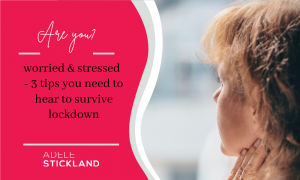This blog outlines why a depleted amount of gut bacteria in your gut will lead to increased weight gain. Why your gut is suffering from depleted bacteria and how you can improve it by eating more pro and prebiotics.
Gut bacteria making you fat?
Over the summer I was away in France and Spain and contracting a tummy bug. In fact, the whole family contracted a tummy bug. The ferry home from Europe was a ‘sticky’ affair. Luckily we had a cabin where we could empty our bowels and stomach contents at will!
Apologies….. messy I know… Yet we all recovered quickly and back to school and work.
Or did we?
I have been bloated and ‘overweight’ ever since. As I clearly explained to one of my Gorgeous Girls, my gut flora is making me fat. She laughed and said ‘yeah I like that one – it has nothing to do with the patisseries or baguettes’
Okay okay, you caught me I do agree that I did increase my naughty treats and the beach walk to the hot chocolate shop wasn’t really enough to compensate that sugary treat. However I don’t usually gain weight on holiday, my habits are so well embedded and I can get back into the groove when I return and my body keeps me in balance.
Not this time and here is why… the yucky science bit.
What makes your gut poorly?
- Sickness. Diahorrea strips your body of ALL your bacteria. The natural response to an alien microbe in your body is to GET RID and fast. And as you remove, you also remove all good and bad bacteria. This leaves your body defenceless.
- Antibiotics. It is not just being sick or poorly that strips all your natural bacteria also if you take a bout of antibiotics for the flu. In addition, antibiotics are also used in your food chain, intensely farmed animals are given a lot of medication and antibiotics which you in turn consume. Antibiotics wipe out bad bacteria and also your good bacteria. Organic meat is not kept in the same way.
- Stress. It isn’t just what you are eating it is also stress. Stress can affect your gut because it raises your stress hormone Cortisol which can stop your gut from working properly.
Why do you need good bacteria?
Your gorgeous gut accounts for two-thirds of your immune system and produces twenty hormones, if your gut isn’t working properly you will feel bloated, uncomfortable and unwell.
Good bacteria in your gut will improve your digestion, strengthen your immune system and manufacture vitamins that your body needs. Bad bacteria will cause digestive problems, mental issues and skin conditions.
How do you know if you have a bad gut problem?
- Digestive issues – like farting, bloating, heartburn, diarrhoea, constipation, IBS
- Bad breath
- Vitamin and mineral deficiencies are caused if your gut is unable to synthesise or absorb the nutrients in your food, which will leave you feeling tired all the time
- Food Intolerances
- Mental issues – your gut bacteria contains neurotransmitters which if not working correctly cause brain fog, OCD, depression and anxiety. Although serotonin is well known as a brain neurotransmitter, it is estimated that 90 percent of the body’s serotonin is made in the digestive tract. In fact, altered levels of serotonin have been linked to diseases such as irritable bowel syndrome, cardiovascular disease, and osteoporosis
The bottom line is not only will have a physical manifestation of too much bad bacteria but it will also affect your mental well-being as well.
Imbalances in your gut can affect your mood
Serotonin is the HAPPY hormone. It puts you in a good mood, exercise helps you to produce serotonin and this hormone is also responsible for making us feel pleasantly full after a meal.
There is an important amino acid called Tryptophan that is used to make the happy hormone. If you have too much sugar or fructose in your body Tryptophan latches onto the sugar and is pushed out of the body, therefore, you are unable to make more serotonin.
Hence links to diet drinks with HFCS (high fructose corn sugar) and anything with fructose on the label can make you DEPRESSED, anxious and sad. Eran Segal ran research on artificial sweeteners like this and discovered that they alter the composition of gut bacteria and cause diabetes in mice.
The point is your gut can affect your mood and your behaviour.
Gut bacteria means your body responds very differently to food than your best friend
OR
Why your BFF can eat ice cream and not get fat!
Your gut bacteria means your response to your food is very personal. Bacteria in your gut will affect your physiology. Segal’s study analysed 1,000 healthy people and tracked their glucose level response after each meal for a week. It is the largest study to date.
The trend that they discovered was two fold
- More carbs you have in your meal the higher your glucose response.
- The more fats you have in your meal the lower the glucose response
Glucose response is dependant on variants such as level of exercise, age, blood hypertension, DNA and stress as well as your meal composition.
However, some people in the study had a huge SPIKE in glucose with rice and not ice cream. How do you explain that?
Microbiome in your gut affects how your body digests your food, whilst your BFF can eat ice cream and not put on weight you can’t. This could be due to the way you digest glucose, what else you have eaten that day, but this research shows it is also down to the health of your gut bacteria.
In the diagram below which is the better diet – left or right?
The right has more protein, while the left has no protein or fats and is the fast track to diabetes. Personally, I eat very little ice cream – I know from personal experience that even the diet on the right would cause me to gain weight. So when the research refers to a ‘good diet’ they specifically mean for that person. Perhaps it is someone who is exercising excessively, very tall and has a nervous disposition which means that they are constantly active.
The interesting point from this diagram is that diets don’t work as a bland ‘one diet suits all’. Your diet needs fundamental basic consistency and then adaptations to suit you. A considered approach that works with you as an individual. Work with me to get the results you want.
Drop me an email and let me know your thoughts

Gorgeous is your journey of discovery
PS. Start your journey book an initial one-off assessment discovery call – the cost is £84 and discover the next stage of your journey would look like then book a call with me – click here I’d love to chat about your transformation change, using nutrition, mindful exercise and personal coaching and become the best version of you
Find out what other clients have to say…
So this is what Get Gorgeous has done for me!!! Addicted to exercise and having the right nutrition to fuel my gorgeous body. It has been a fantastic journey
Caroline Twigg Nurse and mummy of 3 14th July 2017
REFERENCES:
Giulia Enders: Gut
Ted talk Eran Segal what is the best diet for humans?

















5 responses to “Gut bacteria making you fat?”
An interesting read and I especially like the reminder that one size doesnt fit all ?
[…] Don’t miss: why gut bacteria makes you feel fat […]
[…] Don’t miss: why gut bacteria makes you feel fat […]
[…] Don’t miss my blog: Is not Enough Gut Bacteria Making you Fat? […]
[…] Read more about serotonin in your gut with my previous blog is bacteria making you fat […]